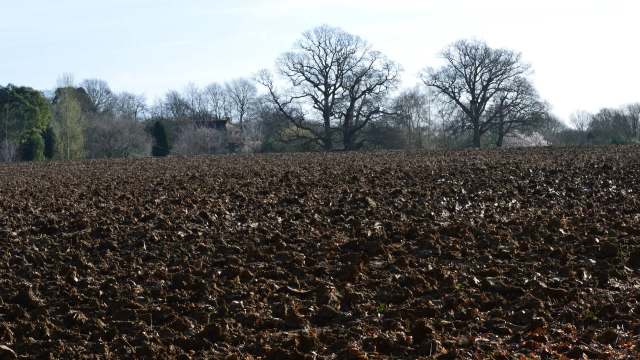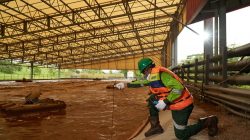The Controversy Surrounding Landspreading and Environmental Oversight
The United Kingdom’s Environment Agency, a non-departmental government body tasked with protecting the nation’s air and water, has come under scrutiny for alleged mismanagement related to the practice of landspreading. This method involves spreading processed sewage sludge over farmland as fertilizer, a practice that has sparked significant concern among environmentalists and scientists.
What is Landspreading?
Landspreading is a controversial technique that has been criticized for its potential risks. A 2009 peer-reviewed journal article described it as an “ominous conjunction of loopholes” between water laws and hazardous waste laws. In 2020, Greenpeace Unearthed conducted an investigation that revealed serious concerns about this practice, highlighting the lack of stringent regulations and oversight.
The Insider’s Claims
An anonymous insider from the Environment Agency recently came forward with allegations of a “deliberate and ongoing cover-up” regarding the safety of landspreading. According to the source, officials within the agency and the U.K. government have allegedly colluded with water companies and wastewater treatment facilities to hide the known dangers from the public.
The insider claims that the issue is not new, having persisted for decades. They stated that the guidelines governing the use of sewage sludge, known as the “safe sludge matrix,” were created in 1998 and are voluntary. These benchmarks, developed by private companies, were simply accepted by the Environment Agency without proper scrutiny.
Regulatory Concerns
The regulatory framework surrounding landspreading has raised eyebrows. An unnamed industry expert referred to the guidelines as an “exercise” in public relations, while another source suggested that the matrix was designed primarily to protect private businesses’ access to farmland. This raises questions about the integrity of the regulatory process and the potential conflict of interest involved.
Potential Health Risks
The concerns extend beyond environmental issues to public health. Scientists and insiders have pointed out that sewage sludge can introduce a range of harmful substances into the soil, including pharmaceuticals, pesticides, hormone-damaging chemicals, microplastics, and PFAS (commonly known as “forever chemicals”). These substances pose long-term risks to both human health and the environment.
The Need for Change
In June, Greenpeace published a follow-up report on the landspreading controversy, noting that implicated companies have no alternative plans for disposing of their waste. Campaigner Reshima Sharma emphasized the need for immediate action, stating that the government must stop toxic sludge from being spread on farmland and hold water companies accountable for safe disposal practices.
Calls for Accountability
The situation has prompted calls for stricter enforcement of regulations and greater transparency. Critics argue that private companies cannot be trusted to self-regulate, and that the government must take a more active role in ensuring public safety. This includes holding water companies responsible for the costs of safe waste disposal rather than passing these expenses on to consumers.
Conclusion
The allegations against the Environment Agency highlight the critical need for robust oversight and accountability in environmental regulation. As concerns about landspreading continue to grow, it is essential for policymakers, regulators, and the public to remain vigilant and demand transparency in the management of natural resources. The stakes are high, and the consequences of inaction could be severe for both the environment and public health.






